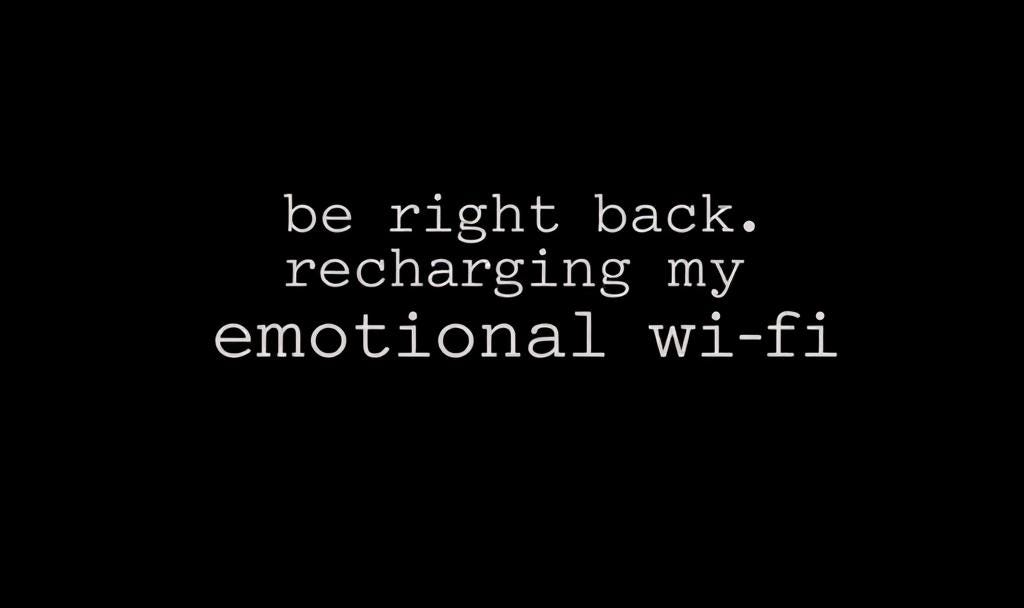When Supporting Others Starts to Feel Like Self-Erasure
Why care shouldn’t mean disappearing, and how to offer support without losing yourself in the process.
Today’s reflection: what happens when “being there” stops being an act of love and starts feeling like a slow fade — when you’re so busy tending to everyone else’s needs that you can’t quite remember where yours went.
As someone with an empathetic nature, I tend to be the friend people call when they are facing a crisis, or at least what they think is a crisis. Whether it’s a breakup or a fight with a coworker, I always provide the classic “you dodged a bullet” or “forget them” pep talk. Do I always mean it? Maybe. Maybe not. It’s just what I do. But somewhere along the way, that open ear started to backfire.
Because you’re busy playing the “I’m here whenever you need me, 24/7” role, you don’t notice that no one’s checking on you, or that this has turned into a one-sided cycle of constant ear-lending. To top it off, you haven’t stopped to check in on yourself, to see where your own bandwidth is at. And before you know it, the line between being there for your friends and slipping into codependency gets so blurry, you don’t even realize it’s happened.
We’re taught to be a “good friend” or a “loving partner.” Job interviews love to ask if you’re a “team player.” I mean, that makes sense. Caring about people matters, and it’s pretty normal to want to be the person they can turn to. Most of us need to talk things out sometimes anyway. Most of us need to talk things through now and then. But there’s this other thing that happens too: a quieter kind of pressure that keeps telling you to keep listening, to keep giving, to always be available. Before you know it, stretching yourself thin starts to feel like proof that you’re showing up.
The result? Emotional labor becomes a kind of invisible currency; one many of us are constantly overspending. We listen and soothe, accommodate and anticipate, stretch ourselves thin and call it “being there.” And then we wonder why we feel like ghosts in our own lives.
The tiny ways we start to disappear
Self-erasure rarely begins with a dramatic moment. It’s usually quieter than that; a slow drip rather than a flood. It sneaks in, quietly adding to the things that wear us down:
Apologizing for having needs (“Sorry, I’m probably being too much”).
Deferring preferences until they vanish (“I’m fine with anything”).
Sucking up everyone else’s vibes and calling it caring.
Spending way too long thinking about every text, like it’s some life-or-death decision instead of just weekend plans.
And then there’s the “fixer” trap; that sneaky belief that your worth is measured by how much you solve. Someone’s having a bad day? You’re already in solution mode. Partner stressed about work? You’re Googling stress management tips like it’s a group project. A friend texts a vague “ugh”? Some how, you’ve suddenly become the therapist, the life coach, the cheerleader. No one asked for it, no one is paying you, and honestly, it’s starting to wear you out.
I once offered to help a friend move and somehow ended up reorganizing their emotional baggage instead. The physical boxes were the easy part. The three hours I spent gently talking them through a situationship crisis while sweating through bubble wrap were not. And then it hit me, I had pushed myself too far. There was a truth I just couldn’t avoid. Was I helping because I genuinely cared, or was I afraid that if I stopped fixing things, I would stop being valuable?
The “weighted blanket” problem
My friends joke that I’m “the human version of a weighted blanket,” which I usually take as a compliment, I think. I am comforting. I am steady. I’m great… until people need air. It’s hard. You try to be there without overdoing it, to help without taking on everything. And somehow, when being the “helper” becomes part of who you are, stepping back feels like abandonment, even though it’s really the healthiest thing for both people.
When care starts to tip into codependency
Codependency shows up in weird little ways. Sometimes it hits you in tiny moments, a sigh from a friend or a glance that says, “You should know what I need.” It is exhausting, and most days you do not even notice until you crash on the couch and think, “Wait, did I do all that for them or just to feel needed. Other people’s problems are heavy, and you quickly realize you cannot carry all of them. Showing up does not mean disappearing into their life. It can be as simple as checking in, setting small limits, and being present without letting their stress take over yours.
Sometimes boundaries are brave
The hardest part about boundaries? That tiny voice going, “They’re going to be mad. They’ll think I don’t care.” I heard it loud and clear last weekend when I had to tell a friend I couldn’t stay late. Guilt hit me, as expected. Then it clicked: showing up with energy and focus matters more than just showing up, exhausted and grumpy.
I try small check-ins for my own sanity. Before I step in, I ask: “Do I actually have the bandwidth?” or “Am I helping, or just dodging my own feelings?” Those tiny pauses keep me from vanishing into everyone else’s needs.
Funny thing is, giving too much can feel like generosity. And that’s when you realize you’re doing more than you can sustain. Both are just extra emotional work that drains you. Noticing it early keeps you from tipping over into overdoing it.
What healthy support actually looks like
Healthy support is not about disappearing or giving yourself away completely. You can be there for someone without vanishing in the process. That’s it.
Mutual care looks like small gestures, not total self-abandonment. Instead of always being the listener, try sharing something vulnerable yourself. Instead of always offering advice, ask for it. You also get to give yourself permission to not answer every late-night vent text. Boundaries don’t make you selfish. They make your support something you can actually sustain.
Support done right isn’t about solving everything or running yourself dry. It’s about holding space without shrinking yourself. If you’re realizing you’ve been the weighted blanket a little too often, you’re not failing. You’re human. And the people who love you would rather have all of you: needs, boundaries, and limits included than a version of you slowly disappearing in the name of support.
My own check-in this week
One thing that grounded me:
A little aha moment hit me: sometimes the best way to go is to never look back.
One thing that ungrounded me:
Forgetting my first coffee of the day and surviving purely on panic and willpower.
Your turn: what’s one small choice, grounding or ungrounding, that shifted your week?
If you’re new here, welcome to Joydify, your soft landing for the quiet stuff that matters.
Thanks for subscribing to Joydify and sharing a quiet moment with us. Here’s to gentle support, one check-in at a time.





